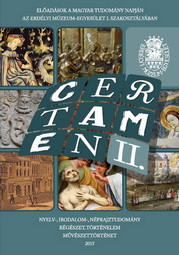A hajdúrend az öt máramarosi városban (1624-től a 18. század elejéig)
The Hajdú Social Status in the So-called Five Towns of Máramaros (from 1624 to the Beginning of the 18th Century)
Author(s): László Glück Subject(s): History
Published by: Erdélyi Múzeum-Egyesület
Keywords: pre-modern Hungary; Máramaros county; semi-freed tenants (libertini); hajdú; military service
Summary/Abstract: The status of semi-freed tenants (libertini) obliged to do military service instead of common servile duties was an inherent part of the social system in pre-modern Hungary. Landlords often called for armed service from their tenants as infantry committed to safeguarding the castle. In return the lord released the rest of rents and services. What can be observed from the end of the 16th century in the history of this status is symptomatic of the fundamental changes which occurred in Hungarian society by the time, the gradual dissolution of the so-called society of orders. The present study aims to provide a case study of this phenomenon from the North-Eastern part of former Hungary (the treated settlements today: Hust, Vishkove and Tyachiv in Ukraine, Câmpulung la Tisa and Sighetu Marmaţiei in Romania). In these days partly the status of libertini canalized the claims for upward social mobility of the laboratores – craftsmen, traders, even peasants –, who failed to join the nobility. They managed to reshape the status akin to nobility: to be a hajdú became inheritable, and the armed service attached to it was hence a mounted one. The term itself, hajdú (heiduck, hajduk), is a novelty as used for semi-freed tenants, adopted from the irregular armed force well known in historical literature. When the working class had no more need of this status, it shortly perished (in the first decades of the 18th century).
Journal: Certamen
- Issue Year: 2015
- Issue No: II
- Page Range: 253-264
- Page Count: 12
- Language: Hungarian

